The attempts to capture life and death were ascribed to various artists throughout history. However, these subjects still attract the attention of contemporary creators who present their views on it. One of them is Damien Hirst, and his peculiarity is in not only in the emphasis of his installations on this theme but also in the ambiguous attitude of the public to his art objects. In this way, he is known as one of the most scandalous figures in the field, and this fact partially explains the popularity of his works. Therefore, the paper aims to provide comprehensive information on the artist’s development in the field, analyze his major contributions, and compare his ideas and their implementation to the ones of his peers.
Biography
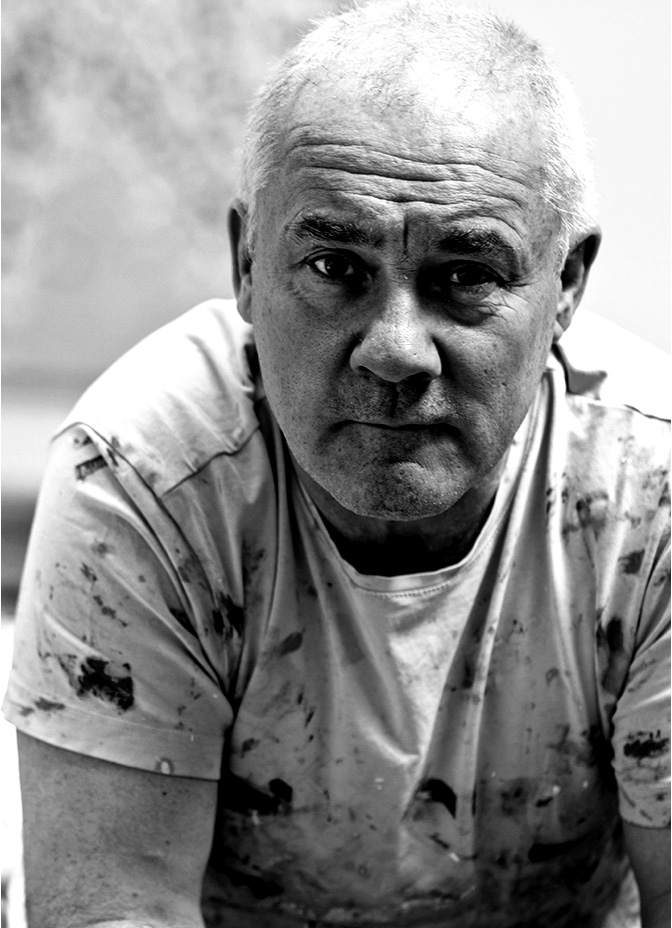
Damien Hirst is one of the most influential figures in contemporary art. The artist was born in 1965 in Bristol and grew up in Leeds (“Damien Hirst”). Hirst was brought up by his mother since his father left when he was 12 (“Damien Hirst Biography”). In 1984, he moved to London to study at Goldsmiths School of Art (“Damien Hirst”). During the time, Hirst started to create his first artworks with fellow students.
At the beginning of his professional career, they primarily included paintings depicting scientific and medical themes. In a while, his attention shifted from them to sculptures, and they were the objects of arts which made him famous around the world (“Damien Hirst”). In his later installations, he was using such media as medical packaging and surgical instruments put into glass (“Damien Hirst”). This specificity consequently became a trademark of most of his installations.
This contemporary artistic figure contributed to the shift from traditional approaches to sculpting and painting to the application of innovative conceptions. Hence, his painting style can be described as geometric abstraction and abstract expressionism. The former means the use of primarily simple figures in the compositions incorporated into surreal spaces (Marinho). The latter, in turn, is the depiction of emotions and their interrelation to the unconscious mind (“Abstract Expressionism”). In this way, he employs two styles in order to create unique works.
Hirst distinguishes his activities by demonstrating the perception of them. He says, “Painting is so poetic, while sculpture is more logical and scientific and makes you worry about gravity”i. It is also interesting to note that he is one of the richest figures in the field and, therefore, he is oftentimes criticized for putting an emphasis on profits (“Damien Hirst”). Hence, Hirst’s reputation among colleagues is unfavorable, whereas he is supported by his friends Carl Freedman and Billee Sellman and his girlfriend (“Damien Hirst Biography”). As for his political stance, Hirst used his art to reflect on his opposition to Brexit (Embuscado). Thus, he is not only a talented artist but also a successful businessman, and his legacy within art history relates to surrealistic representation of life and death.
Analysis of Major Works
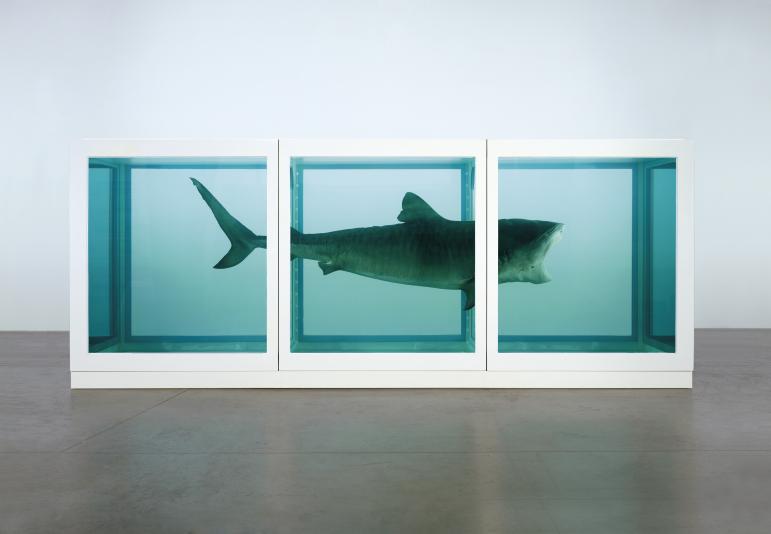
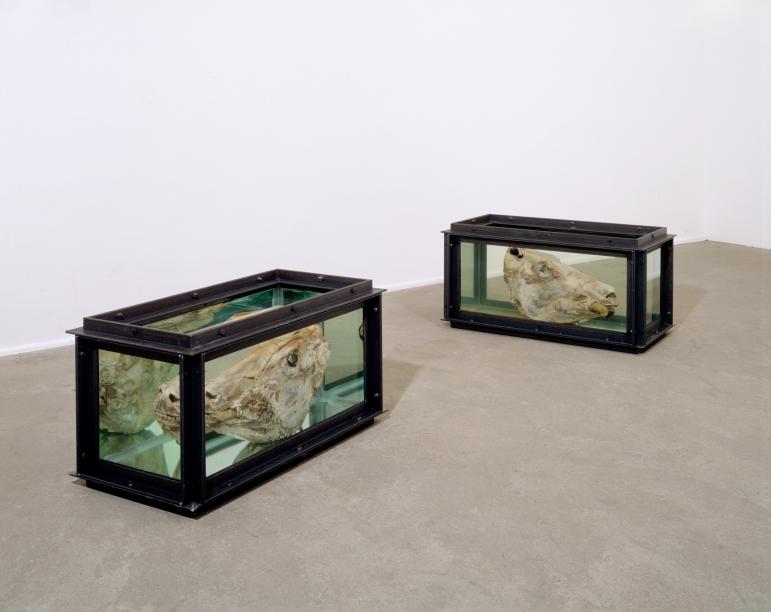
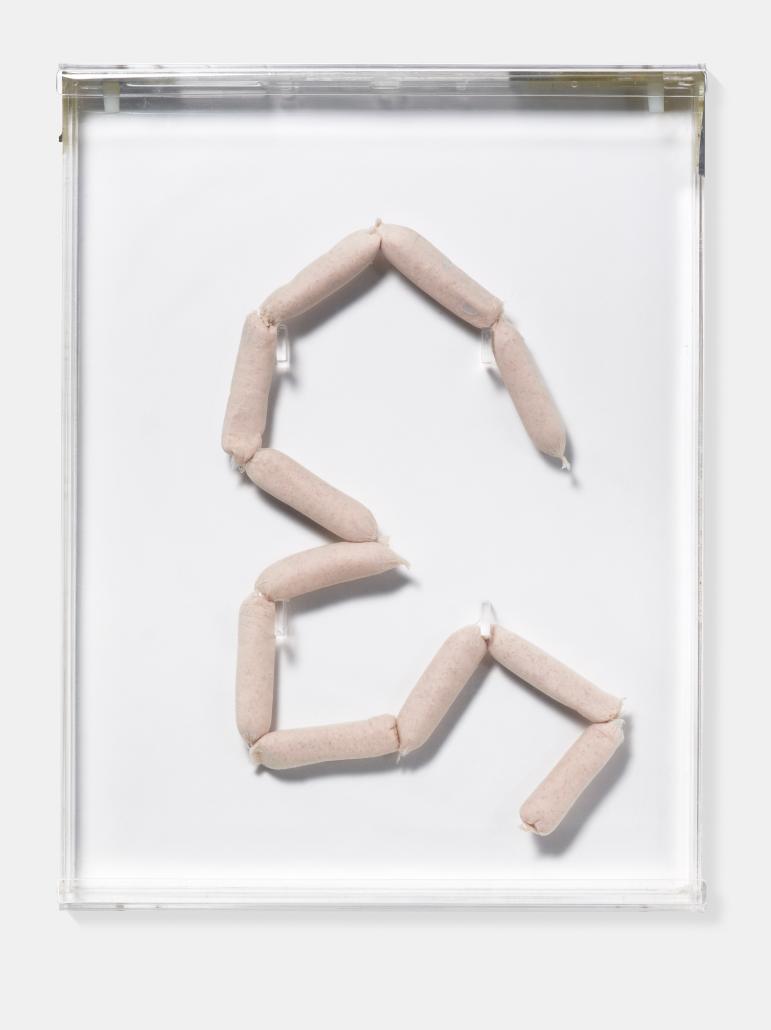

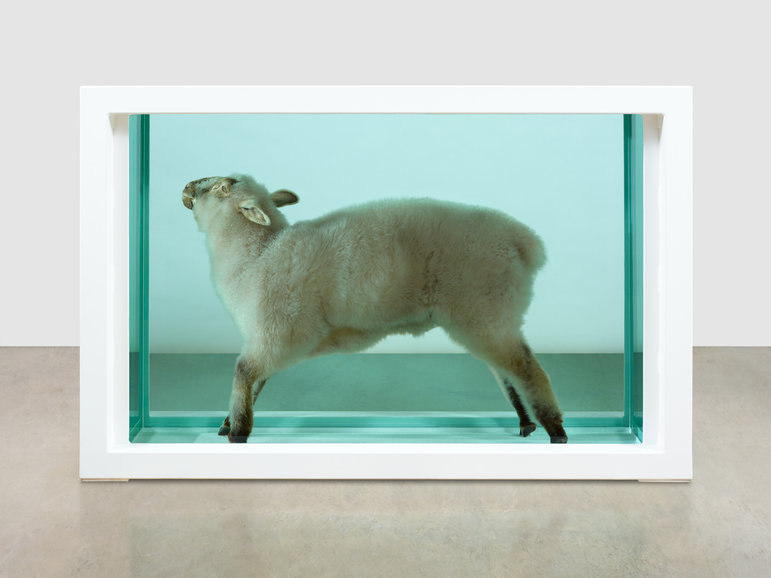
The Physical Impossibility of Death in the Mind of Someone Living
The first installation of Damien Hirst under consideration is a work belonging to abstract expressionism. It is one of his most iconic pieces representing a giant tiger shark put into a tank with formaldehyde (see Figure 1). In this artwork, the principal media also includes a steel and glass vitrine. The subject matter of this installation is the unconscious perception of death which is quite elusive but still presents in life. In this way, the artist used a real shark as a symbol to demonstrate that it is real, instill fear in viewers and thereby show his mastery of the materials’ selection.
Contextual Analysis
This emblematic artwork of Damien Hirst implies the presence of a personal or creative context. It is explained by the fact that this installation is one of his early works created during the study. In this way, the artist’s primary intention was to demonstrate the direction for his future work and professional development through the provision of key notions in a single piece. The creativity, in turn, complements the desire to express his perceptions of death by adding to the idea of Hirst’s involvement in the continuous efforts of artistic figures to become closer to the mystery of life and death.
Away from the Flock
Another work selected for the analysis also belongs to abstract expressionism. However, this time it demonstrates life, the opposite side of death, as depicted in the tiger shark (see Figure 2). In this installation, the artist used glass, painted steel silicone, acrylic, plastic, and the lamb put into a tank with formaldehyde, and this choice of materials allows concluding on the similarity with his other works (Figure 2). In this case, the subject matter relates to the unconscious attempts to evoke pity in the viewers. Hence, the lamb represents a victim which destiny, however, is no different from the one of the shark. The artist’s skills, in turn, include his ability to demonstrate any manifestation of reality.
Contextual Analysis
The second work is related to the social context since it implies the involvement of numerous people in the process of reflecting on the meaning of life. In this case, the lamb serves as a symbol of an outcome which is the same for everyone and the need to understand the importance of human relations. The transmitted idea is that the one without a flock is practically dead. In this way, the installation highlights the meaning of companionship or, in a global sense, society.
Comparison with Peers
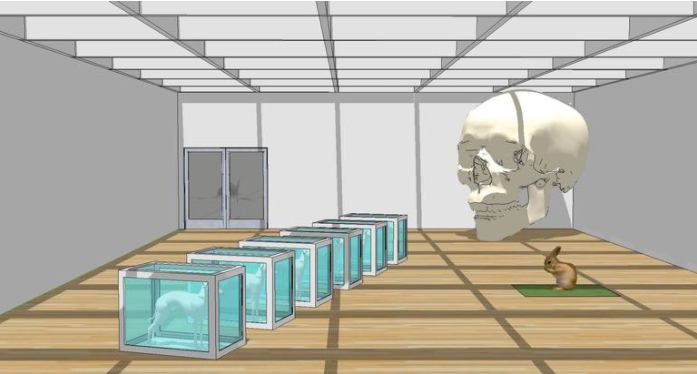
The first example of a person somehow connected to Damien Hirst is Da Lumley, and his work For the Love of Dog has a row of similarities with the former’s pieces of art. This contemporary figure’s painting also represents the theme of life and death and includes various animals (see Figure 6). Moreover, both artists use the same context, which is social, since it is connected to the main topic of their works. However, the principal differences between them is in the selection of materials, since Hirst’s ideas are incorporated in glass and steel installations, whereas Da Lumley’s works are solely paintings.
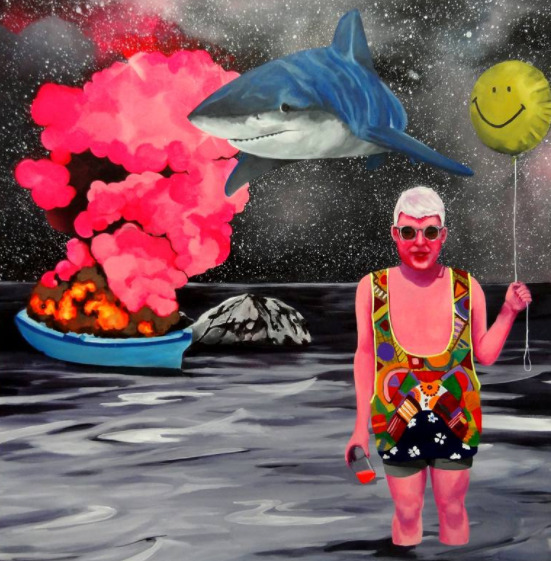
The second artist, inspired by Damien Hirst, is Super Future Kid, whose work with the same name repeats the former’s theme. It employs the same subject, which is death and life, and depicts it in the details ascribed to them. In this way, the bright colors of the balloon and the man’s clothes are contrasted by the volcano in the background (see Figure 7). Nevertheless, the materials differ as in the case of the first piece of art for comparison.
Conclusion
To summarize, Damien Hirst is one of the most controversial artists, and his representation of life and death evokes diverse reactions of the public. The preference of installations over other types of works and the use of social and personal contexts also present his distinctive characteristics. However, despite the lack of agreement on the attitude towards this artistic figure, he became a role model for numerous contemporary artists. Thus, Hirst can be considered as one of the most influential people in the field.
Bibliography
“Abstract Expressionism.” Tate, n.d.
“Damien Hirst.” HENI Leviathan, n.d.
“Damien Hirst Biography.” Biography. 2017.
Embuscado, Rain. “Damien Hirst Uses His Signature Butterflies Against Brexit Vote.” Artnet News. 2016.
Marinho, Regia. “What is Geometric Art?.” Medium. 2019.
“Sculptures & Carvings.” McQuillen Studios, n.d.